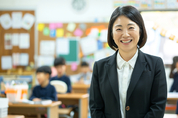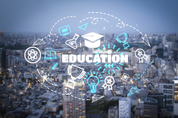-

Rethinking the Way We Handle the High School Credit System
Rethinking the Way We Handle the High School Credit System (고교학점제) School should not be a place where every student is forced into the same mold, but a space where different talents and dreams are nurtured. The High School Credit System (고교학점제), scheduled to be fully implemented in Korea by 2025, is a bold step toward personalized learning. Its goal is to give students more choice in what they study — allowing them to take courses that match their interests, abilities, and future goals, much like in a university setting. But as the system moves from theory to practice, important challenges are
- 관리자 기자
- 2025-07-09 11:08
-

Rethinking the Way We Handle School Violence
Rethinking the Way We Handle School Violence School should be a place where students feel safe, respected, and able to learn freely. However, in recent years, a growing number of reports have shown that school violence — including bullying, verbal abuse, and even physical aggression — continues to be a serious problem in Korea. More concerning is the fact that the current response system often fails to protect victims effectively or to solve the root causes of the problem. If we want real change, it is time to examine what is going wrong and what must be done differently. ◇ What’s Not Working?
- 관리자 기자
- 2025-06-11 10:54
-

Understanding Gender Sensitivity: Why It Matters in Today’s Education
In our rapidly changing world, fairness and respect are values that matter more than ever. As young people grow up in a society filled with diverse identities, it is important that they are taught not just how to study, but how to understand and care about those around them. One of the key lessons that should be part of every student's learning journey is gender sensitivity. In Korean, this is called 성인지 감수성, which means the ability to recognize, understand, and respond respectfully to gender differences and inequalities. Teaching gender sensitivity in schools is not just helpful — it is essen
- 관리자 기자
- 2025-06-10 20:40
-

When Respect Fades: Analyzing the Rise in Parent-Led Violence and Teacher Exodus in South Korea
In a country renowned for its fierce academic competition, South Korean teachers now face escalating risks—not solely from the pressures of high-stakes exams, but from a growing wave of verbal abuse, threats, and even violence by parents and students. This troubling trend is triggering a surge in teacher resignations and mental health crises, shaking the foundations of public education. Rising Resignations and Reports of AbuseRecent data paints a stark picture: Nearly 589 teachers with less than five years of experience left the profession between March 2022 and April 2023—a nearly twofold i
- 관리자 기자
- 2025-06-10 20:17
-

When Respect Fades: The Alarming Rise of Parent Violence in Korean Schools
Education is often described as the foundation of a nation’s future, and teachers are at the center of that foundation. In South Korea, a country known for its strong emphasis on education and academic achievement, teachers have traditionally held a respected position in society. However, recent incidents involving verbal abuse, threats, and even physical violence by parents toward teachers have raised deep concerns across the country. As cases of parent-led violence increase, many educators and citizens are beginning to ask: what is happening to the relationship between schools, parents, and
- 관리자 기자
- 2025-06-10 20:14
-

The Controversial Future of AI Digital Textbooks in Korea
As the world becomes increasingly digital, education systems around the globe are seeking ways to modernize. South Korea, known for its strong academic culture and technological leadership, is now stepping into a new phase of innovation through the use of AI Digital Textbooks (AIDT). These textbooks, powered by artificial intelligence, promise to transform classrooms with personalized learning and smart feedback systems. However, despite their potential, AIDTs are also facing serious controversy regarding their fairness, effectiveness, and role in education. AI Digital Textbooks are more than
- 관리자 기자
- 2025-06-10 19:54
-

The National Education Committee: Shaping the Future of Korean Education
In a society where education is deeply connected to personal success and national progress, how a country sets its education policies matters greatly. In South Korea, education has long been a top priority — but also a topic of frequent political debate and constant change. To bring greater consistency, vision, and fairness to the nation’s education system, the National Education Committee (NEC) was established. This new, independent body is now at the center of Korea’s efforts to create long-term, future-oriented education policies that can serve students, teachers, and society more effective
- 관리자 기자
- 2025-06-10 19:45
-
 Entertainment · Broadcasting
Fair Play Menarini International Award, 29th Award Ceremony marked by waves of emotion
Entertainment · Broadcasting
Fair Play Menarini International Award, 29th Award Ceremony marked by waves of emotion
-
 Entertainment · Broadcasting
The Rose, the first Korean band to perform at Coachella, confirms Seoul concert on August 30 for “Once Upon a WRLD”
Entertainment · Broadcasting
The Rose, the first Korean band to perform at Coachella, confirms Seoul concert on August 30 for “Once Upon a WRLD”
-
 Culture · Events
Incheon Port Authority kicks off the 6th Incheon International Marine Forum in Songdo, Incheon, to look into the future of the global marine industry
Culture · Events
Incheon Port Authority kicks off the 6th Incheon International Marine Forum in Songdo, Incheon, to look into the future of the global marine industry
-
 Culture · Events
Seocho Symphony Orchestra to hold performances in Berlin, Germany, and London, England, commemorating the 80th anniversary of liberation and the 75th anniversary of the Korean War
Culture · Events
Seocho Symphony Orchestra to hold performances in Berlin, Germany, and London, England, commemorating the 80th anniversary of liberation and the 75th anniversary of the Korean War
-
 Culture · Events
Gyeonggi Province to hold its largest job fair for middle-aged and older workers on the 9th. 1,000 jobs to be filled.
Culture · Events
Gyeonggi Province to hold its largest job fair for middle-aged and older workers on the 9th. 1,000 jobs to be filled.
-
 International
Jeju's soul resonates in Rome... Singing of the pain and reconciliation of Jeju 4·3
International
Jeju's soul resonates in Rome... Singing of the pain and reconciliation of Jeju 4·3
-
 International
Seoul City establishes a foothold for K-Beauty and fashion to enter the European market, promoting Milan as a base
International
Seoul City establishes a foothold for K-Beauty and fashion to enter the European market, promoting Milan as a base
-
 Medical · Health
Korean Centers for Disease Control and Prevention: Increase in hand, foot, and mouth disease among infants and young children! Follow preventive measures and maintain good hygiene to stay healthy.
Medical · Health
Korean Centers for Disease Control and Prevention: Increase in hand, foot, and mouth disease among infants and young children! Follow preventive measures and maintain good hygiene to stay healthy.
-
 Medical · Health
Korean Centers for Disease Control and Prevention: Injured patients account for the largest proportion of hospitalized patients; falls are the main cause
Medical · Health
Korean Centers for Disease Control and Prevention: Injured patients account for the largest proportion of hospitalized patients; falls are the main cause
-
 Medical · Health
WHO and international health experts visit Wanju local food production sites
Medical · Health
WHO and international health experts visit Wanju local food production sites
-
2026-01-29 23:44
11
-
2026-01-28 23:36
No. 6 Reporter
-
2025-12-09 14:30
Seong Ki-sun's Book Launch Event ‘Education in Turmoil’...Seeking Hope for Public Education Through Basic, Relationship, Growth (BRG)
-
2025-11-04 13:48
JP EDU - Hidden Opportunities in Japan: English-Taught International Studies Programs Open Doors to Prestigious Universities
-
2025-10-27 11:03
2026 대한민국영어신문 주니어 영어 기자단 모집


















